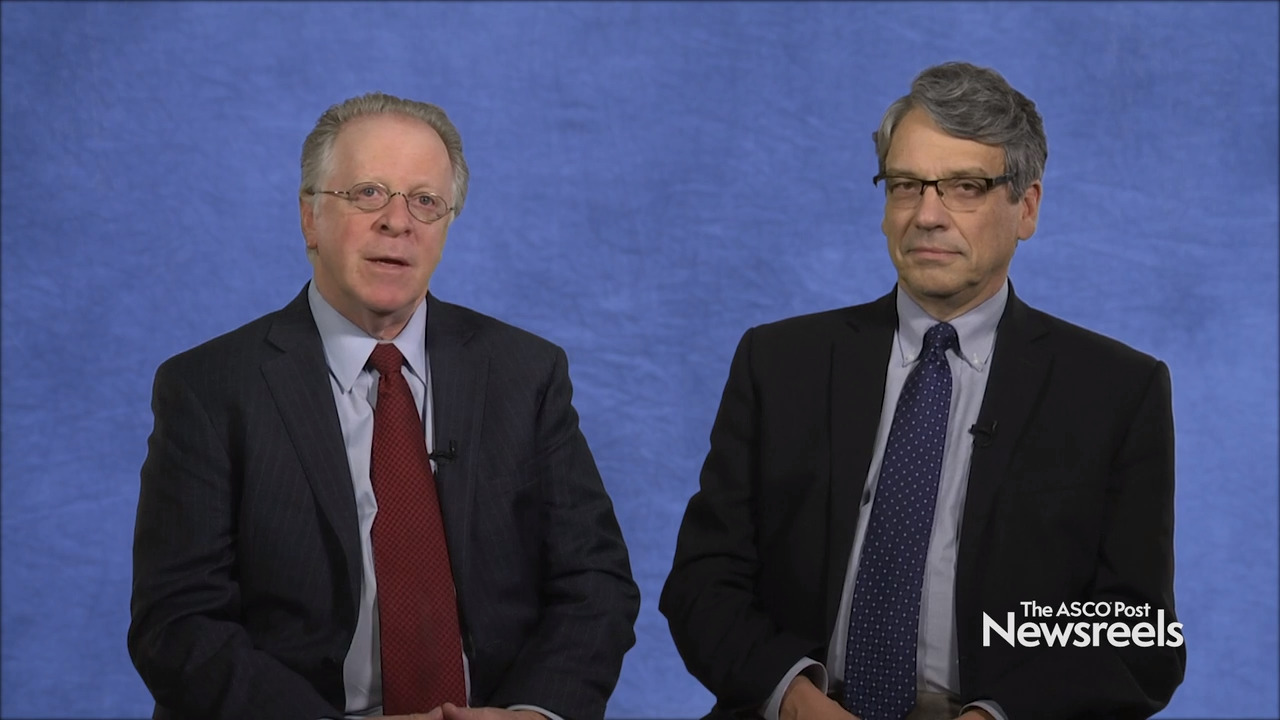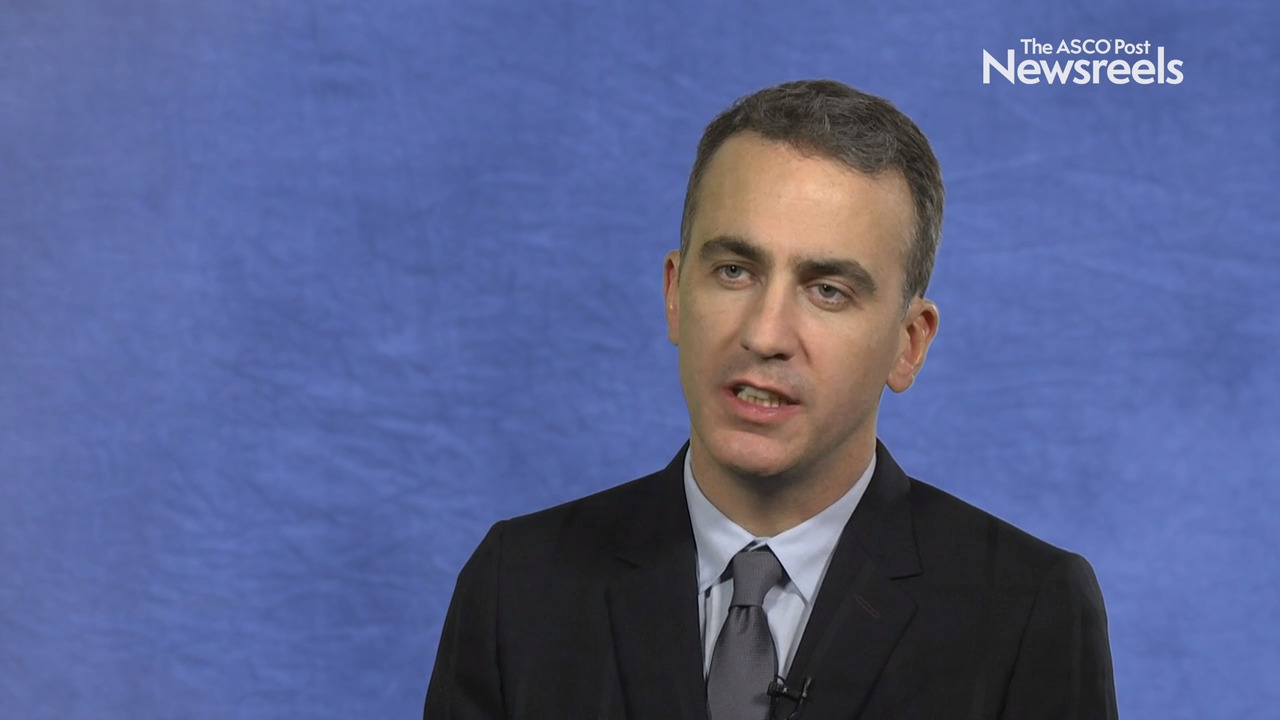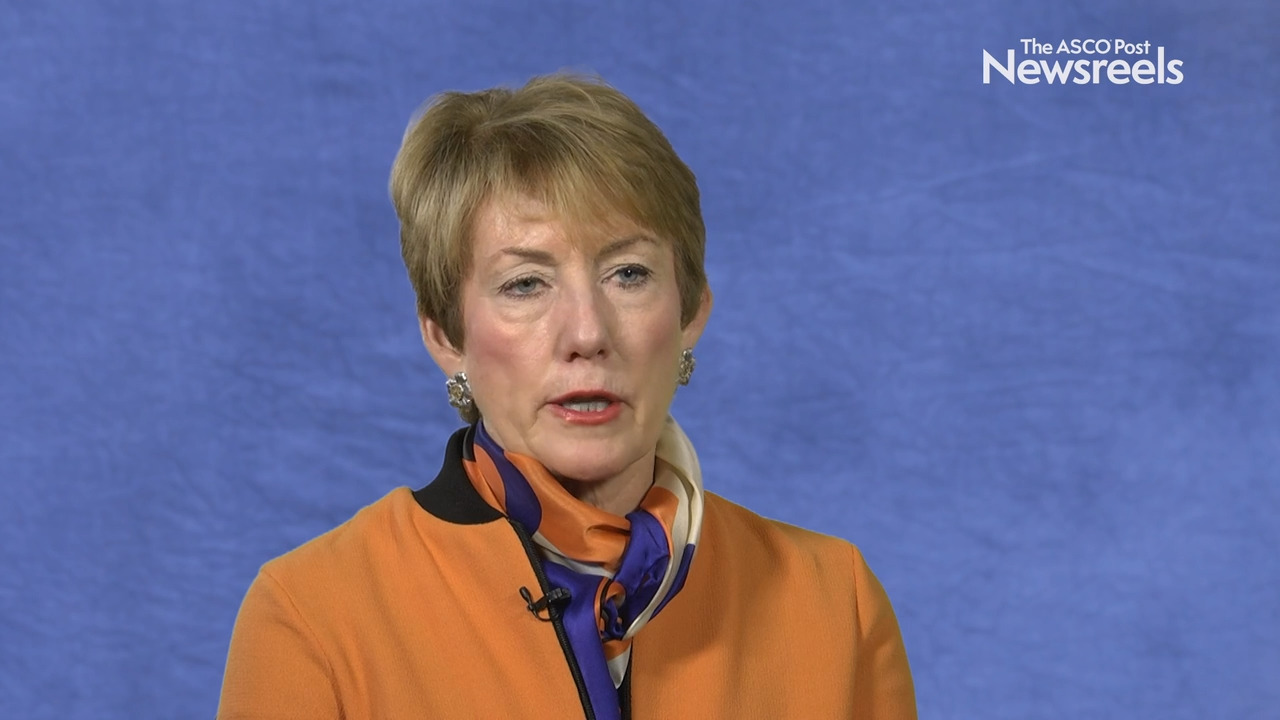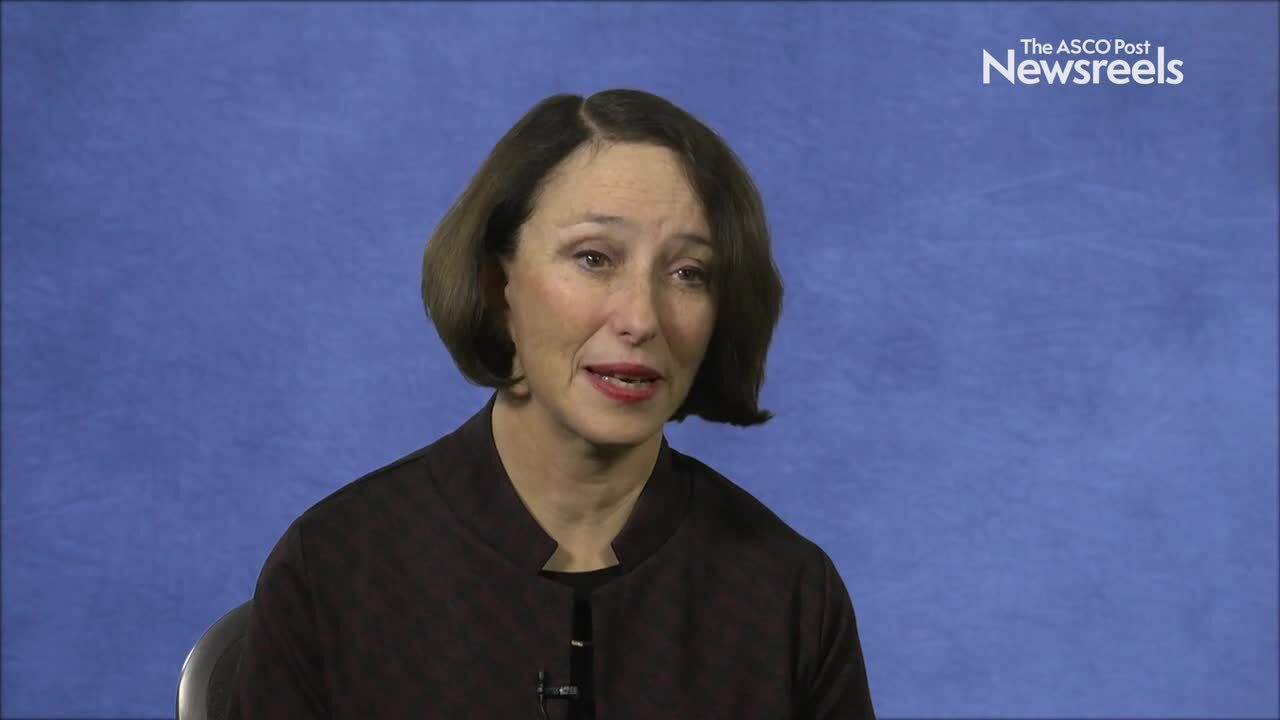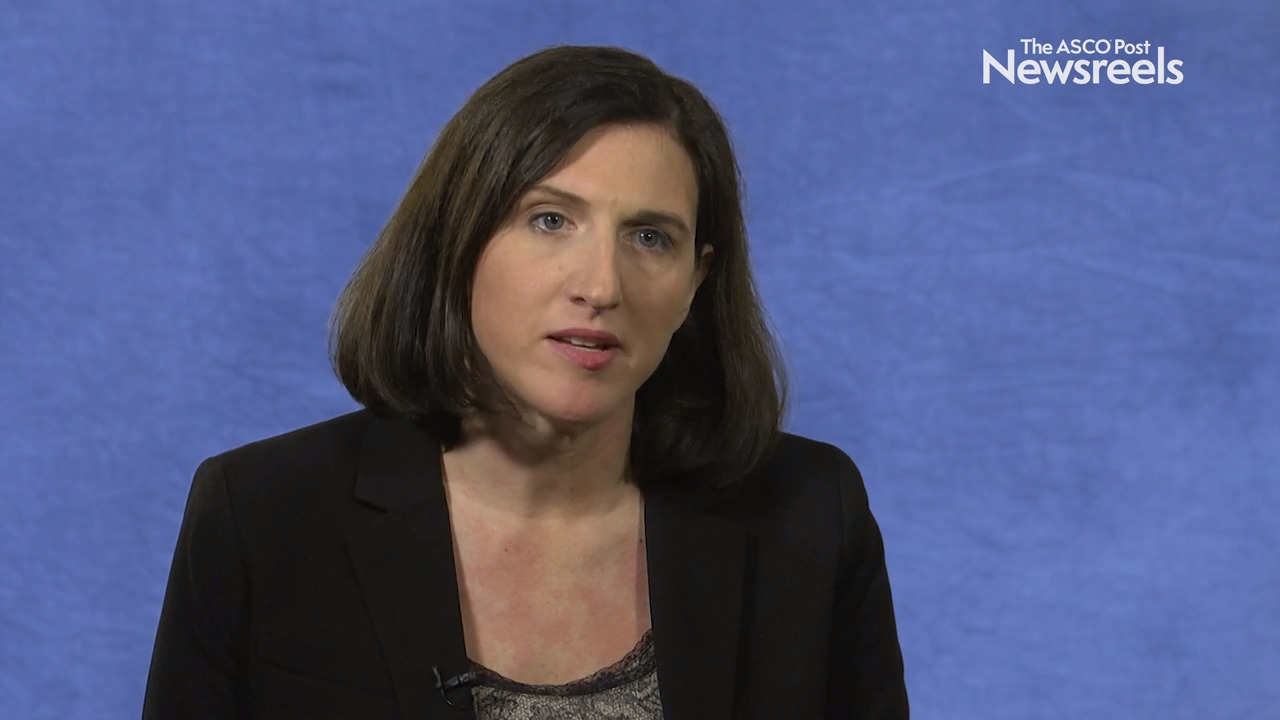Laura S. Dominici, MD, on Young Women With Breast Cancer: Local Therapy and Quality of Life
2018 San Antonio Breast Cancer Symposium
Laura S. Dominici, MD, of the Dana-Farber Cancer Institute, discusses the lower quality-of-life scores seen after unilateral or bilateral mastectomy compared with breast-conserving surgery in women younger than age 40 who are treated for breast cancer (Abstract GS6-05).
Andrew D. Seidman, MD, of Memorial Sloan Kettering Cancer Center, and Charles E. Geyer, MD, of Virginia Commonwealth University, discuss phase III study findings on ado-trastuzumab emtansine vs trastuzumab as adjuvant therapy in patients with early HER2-positive breast cancer with residual invasive disease after neoadjuvant chemotherapy and HER2-targeted treatment (Abstract GS1-10).
François-Clément Bidard, MD, PhD, of the Institut Curie and the University of Versailles, discusses phase III study findings on the clinical utility of circulating tumor cell count as a tool to choose between first-line hormone therapy and chemotherapy for estrogen receptor–positive, HER2-negative metastatic breast cancer (Abstract GS3-07).
Monica Morrow, MD, of Memorial Sloan Kettering Cancer Center reviews lessons learned from top abstracts, including how to tailor the extent of local therapy to minimize morbidity, the diminishing role of axillary lymph node dissection, long-term sequelae of breast surgical procedures, and the need to discuss outcomes with patients.
Judy E. Garber, MD, of the Dana-Farber Cancer Institute, summarizes a special session she moderated, which included discussion of polygenic risk scores, genetic testing in diverse populations, and what to do when presented with moderate-penetrance mutations.
Allison Magnuson, DO, of the University of Rochester Strong Memorial Hospital, discusses the development of a chemotherapy toxicity risk score that is associated with dose reduction as well as reduced respiratory distress and fewer hospitalizations (Abstract GS6-04).
